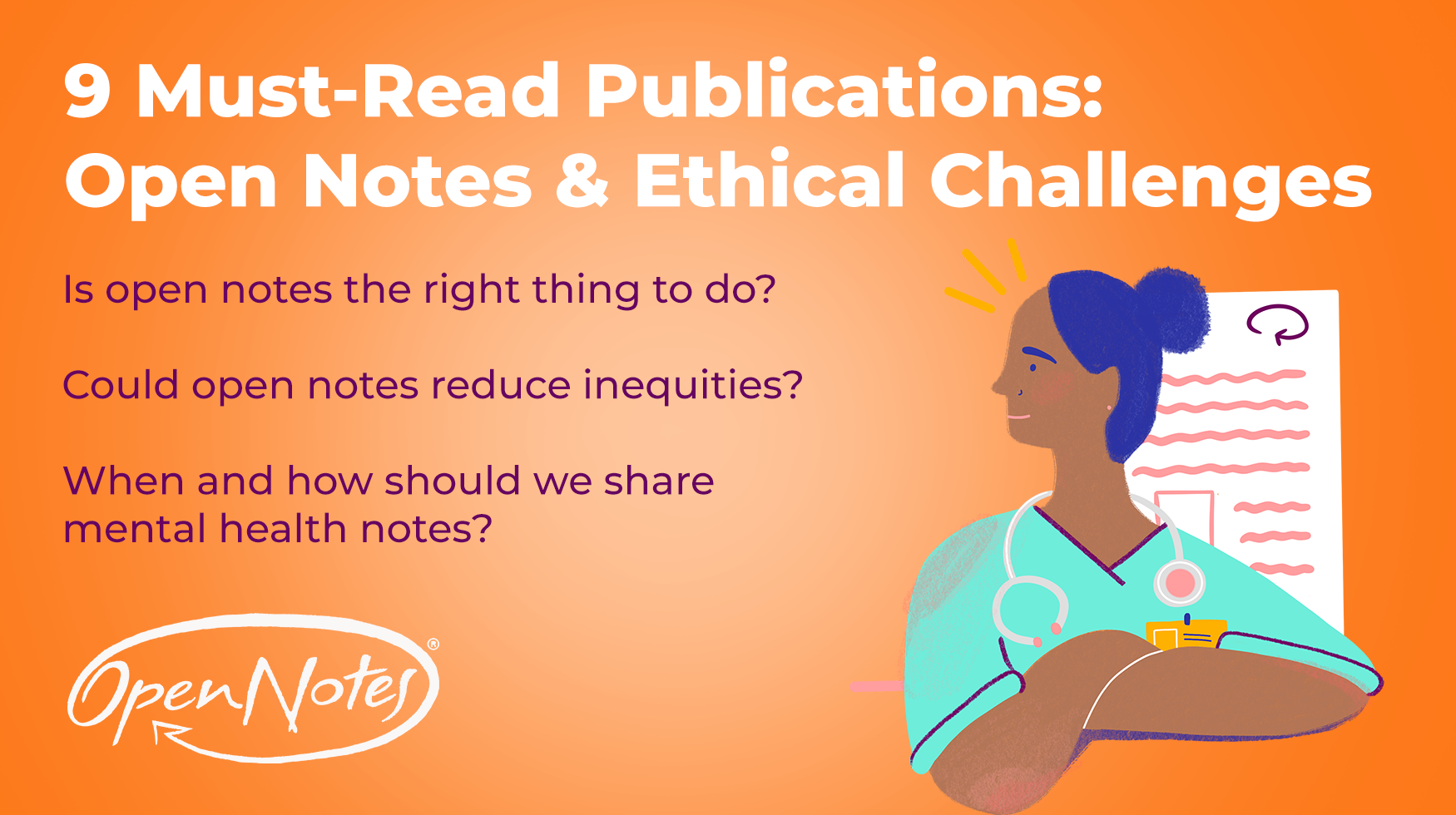
By Charlotte Blease, PhD
9 Must-Read Publications: Open Notes and Ethical Challenges
As the 21st Century Cures take effect, clinicians are legally mandated to share access to patients’ notes. But is this the right thing to do? All innovations invite new challenges, and open notes are no different. At OpenNotes we study the ethical implications of sharing clinical notes and the ethical consequences for patients of clinicians hiding documentation. Our goal is to empower patients and clinicians by exploring how clinicians can optimize note sharing for the benefit of patients and their caregivers while also upholding – and even enhancing – the accuracy and detail of the clinical record by partnering with patients.
The research below reflects some of the ethical questions we have explored. The publications listed can also be found on the OpenNotes Research page.
Note: Most publications are open access or can be acquired by contacting the corresponding author listed on the website.
Sharing clinical notes: Is it the right thing to do?
Blease C, DesRoches C, Hägglund M, et al. Knowledge, power, and patients: The ethics of open notes. Journal of Medical Ethics Blog (2021).
Sharing notes and social justice: Could open notes reduce inequities?
Blease C, Fernandez L, Bell S, et al., Empowering patients and reducing inequities: is there potential in sharing clinical notes? BMJ Quality & Safety, http://dx.doi.org/10.1136/bmjqs-2019-010490
When and how should we share mental health notes?
The benefits and harms of open notes in mental health: A Delphi survey of international experts, PLOS ONE (2021)
This survey used a Delphi poll – an established methodology used to investigate emerging healthcare policy, including in psychiatry. International experts who included health professionals and persons with lived experience of mental healthcare were asked to give their opinions, anonymously, in three rounds of online surveys, and to offer their views about the potential benefits and harms of online access to mental health notes. Experts – drawn from 70 experts from six countries – agreed patients’ access to their mental health notes could offer multiple benefits and few harms.
Blease C, Kharko A, Hägglund M, et al. The benefits and harms of open notes in mental health: A Delphi survey of international experts. PLoS ONE 16(10): e0258056. https://doi.org/10.1371/journal.pone.0258056
Blease C, O’Neill S, Torous J. et al. Patient Access to Mental Health Notes: Motivating Evidence-Informed Ethical Guidelines. The Journal of Nervous and Mental Disease, 209(4), pp.265-269.
Preparing Patients and Clinicians for Open Notes in Mental Health: Qualitative Inquiry of International Experts, JMIR mental health (2021)
This web-based survey solicited the views of experts on provider policies and patient and clinician training or guidance in relation to open notes in mental health care. Experts were identified as informaticians, clinicians, chief medical information officers, patients, and patient advocates with extensive research knowledge about or experience of providing access to or having access to mental health notes. In total, 70 of 92 (76%) experts from 6 countries responded. Experts identified the need for: further refinement of exemption policies in relation to sharing mental health notes, enhanced guidance for patients, and curricular changes for students and clinicians to better prepare them for sharing mental health notes.
Blease C, Torous J, Kharko A, et al. Preparing Patients and Clinicians for Open Notes in Mental Health: Qualitative Inquiry of International Experts. JMIR Ment Health 2021;8(4):e27397
Blease C, O’Neill S, Walker J, et al. Sharing notes with mental health patients: balancing risks with respect. The Lancet Psychiatry. February 11, 2020. DOI: 10.1016/S2215-0366(20)30032-8
Blease C, Torous J, Kharko A, et al. Preparing Patients and Clinicians for Open Notes in Mental Health: Qualitative Inquiry of International Experts. JMIR Ment Health 2021;8(4):e27397



